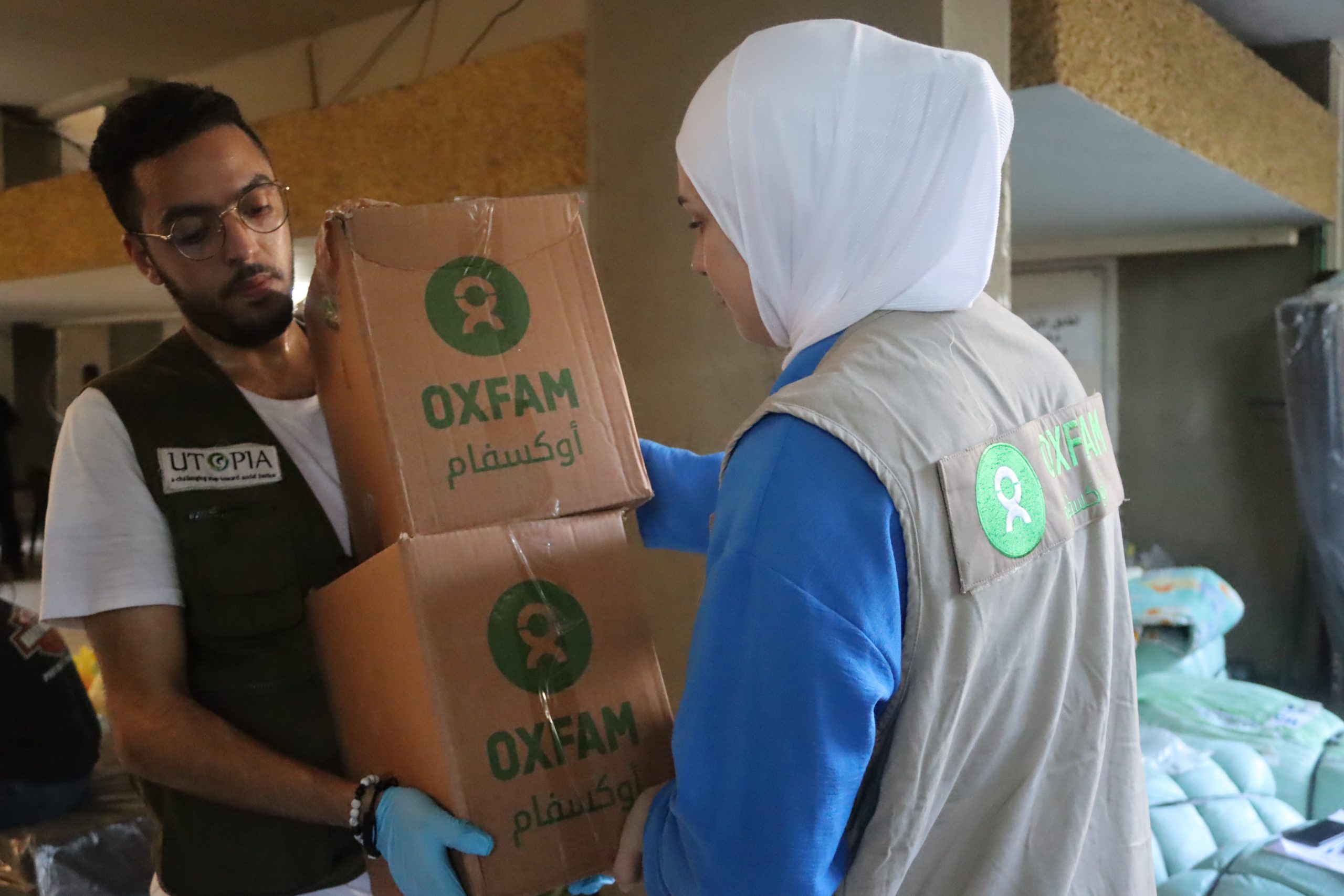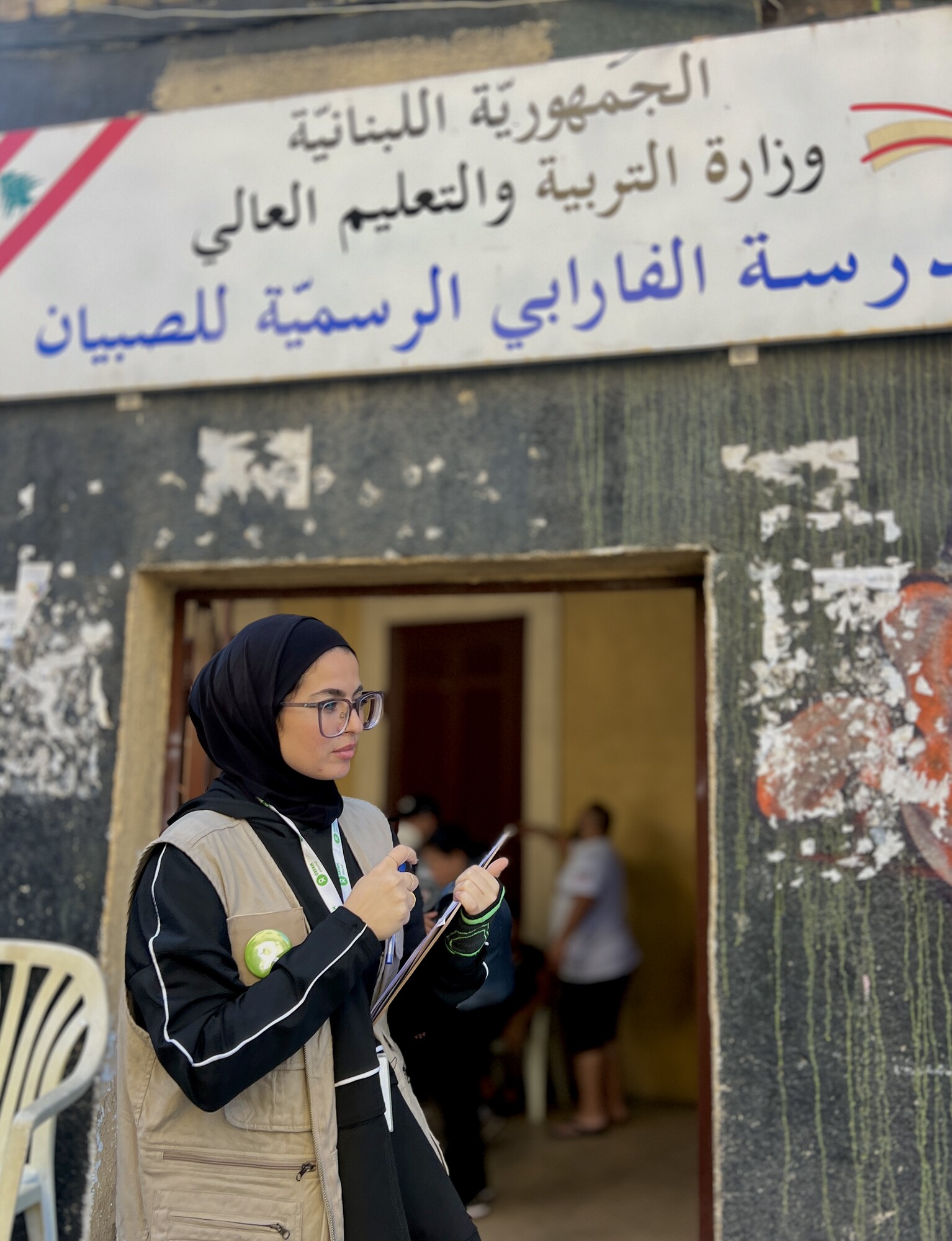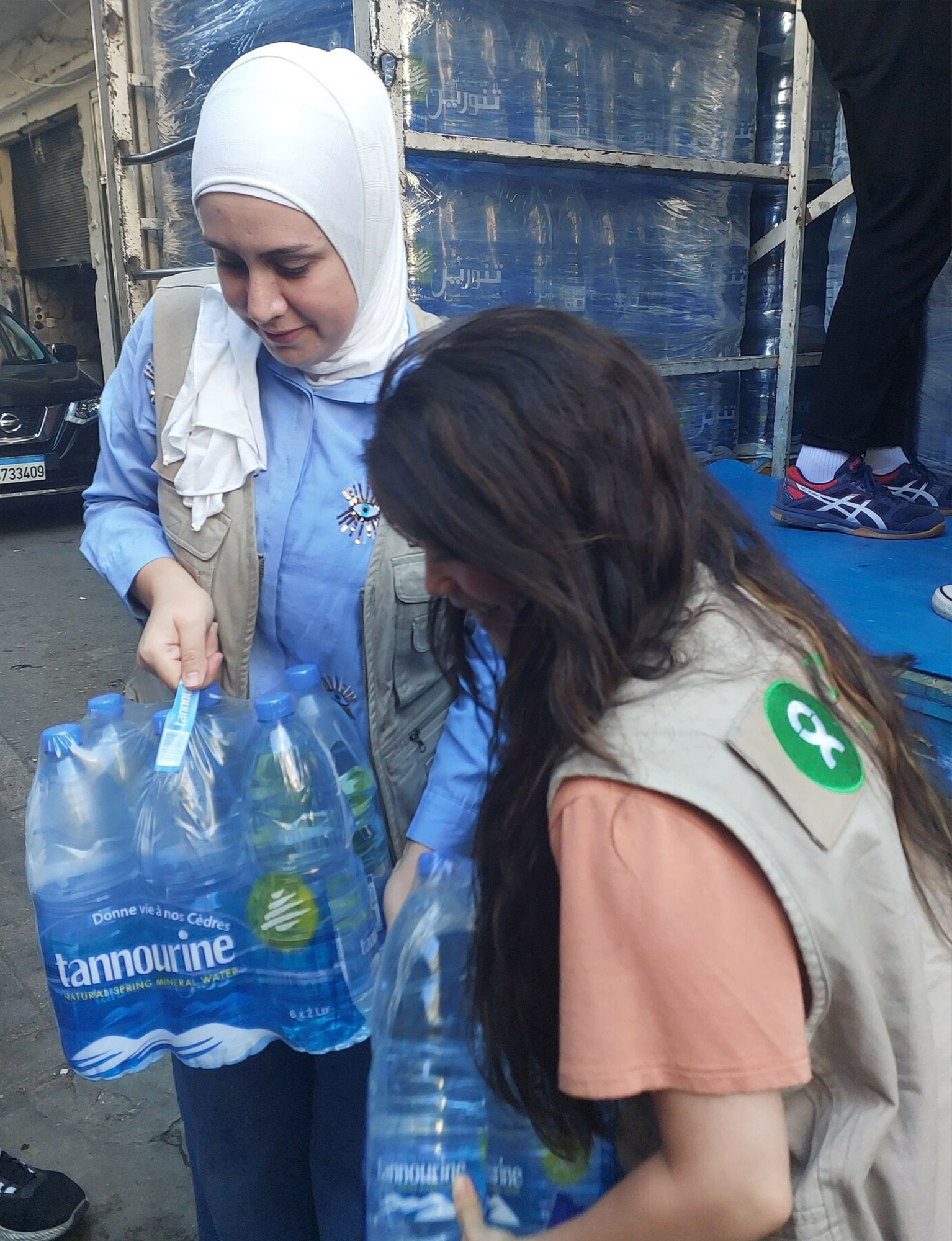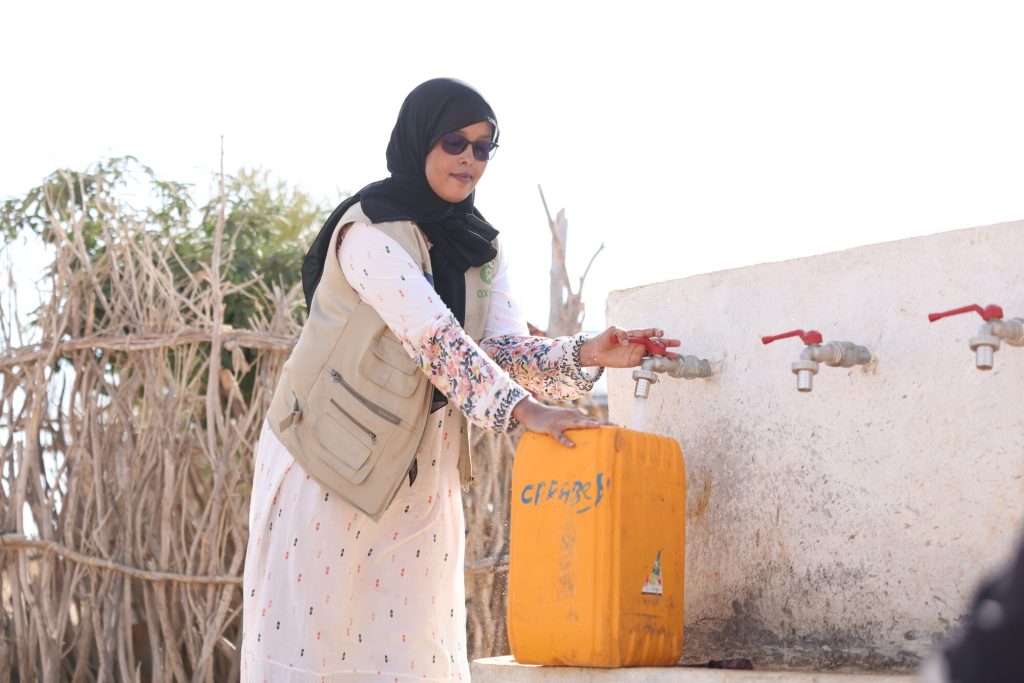What is Happening in Lebanon: 5 Things to Know
As the world watches the war in Gaza drag on, Lebanon is now fully swept into the conflict, facing its own mounting humanitarian catastrophe. Israeli strikes on Lebanon have been relentless, resulting in over 2,000 individuals killed and more than 9,000 injured since October 2023. The Lebanese government estimates over a million people - nearly one-quarter of the population- have been displaced so far: 35% of displaced persons are children, whereas 52% are women and girls.
This comes at a time when the country is already grappling with years of compounded crises, the Syria crisis, the COVID-19 pandemic, the Beirut Blast, the 2022 cholera outbreak, and an ongoing economic crisis.
Here’s what you need to know about the unfolding situation in Lebanon, how it connects to the crisis in Gaza, and how Oxfam and its partners are responding on the ground.
LEBANON HUMANITARIAN EMERGENCY - RUSH A DONATION TODAY
1. Over a Million People Displaced and in Need of Immediate Aid
The war in Gaza is spilling over into neighboring Lebanon, where Israeli airstrikes have forced more than a million people to flee their homes. With so many people displaced, Lebanon’s already strained resources are being pushed to the breaking point. Displaced families are living in shelters with little to no access to food, clean water, shelter, and medical care, and the situation is growing more critical by the day.
Oxfam has been at the forefront of the humanitarian response in Lebanon, working with local partners to address these urgent needs. Our teams have visited over 50 shelters across Beirut, North Lebanon, and Mount Lebanon, distributing food, water, hygiene kits, and mattresses to displaced families. However, much more is needed to meet the overwhelming demand.
- Among the needs are mattresses and bedding kits, hygiene items, and medication, as well as drinking water.
- Other items, such as food and functioning toilets are so far provided on an ad-hoc, day-to-day basis, without long-term planning.
This situation in Lebanon mirrors the crisis in Gaza, where we’ve seen thousands of Palestinians forced from their homes due to Israeli airstrikes while having nowhere safe to go. The displacement of families in both Lebanon and Gaza highlights the interconnectedness of these crises—and the urgent need for international action.

2. Escalating Violence: Lebanon’s Deadliest Days Since the Civil War
Lebanon is witnessing some of its most intense violence in decades. On September 23rd and 24th, Israeli forces launched an unprecedented assault, dropping around 2,000 missiles in just 48 hours. These strikes resulted in the highest death toll in Lebanon since the 1975-1990 civil war. More than 2,000 people have lost their lives, including 127 children, and the violence shows no signs of slowing.
This escalation is part of a broader conflict involving Lebanese and Palestinian armed groups exchanging cross-border fire with Israel. Oxfam’s teams on the ground are witnessing the devastating effects firsthand. Our work in Lebanon is crucial to providing life-saving assistance, but as the violence spreads, it is becoming increasingly difficult to access communities in need.
Both Lebanon and Gaza have seen their healthcare systems targeted, with ambulances, healthcare workers, and emergency responders being hit in the crossfire. In Lebanon, 97 healthcare and emergency workers have been killed. Oxfam continues to call for the protection of civilians and humanitarian workers on both sides of the border. The death and destruction in Lebanon and Gaza must end now.
3. Lebanon’s Crumbling Infrastructure Cannot Handle This Crisis
Even before the conflict spilled into Lebanon, the country was grappling with years of compounded crises. Lebanon’s economy has been in freefall since 2019, exacerbated by the 2020 Beirut port explosion, which killed hundreds and left large parts of the capital in ruins. In recent years, Lebanon has also dealt with a cholera outbreak, skyrocketing poverty, and a public services collapse. Now, with over a million people displaced, the country’s fragile infrastructure is buckling under the pressure.
Lebanon’s ability to cope is further complicated by the ongoing war in Gaza. With international attention focused on Gaza, Lebanon’s crisis risks being sidelined, despite the growing need for humanitarian aid. Oxfam is working hard to ensure that Lebanon remains a priority for the international community. We’ve been on the ground in Lebanon since 1993, and we’re committed to scaling up our response, but we cannot do this alone.
Both regions are bearing the brunt of an escalating conflict that the international community cannot afford to ignore.
4. Syrian Refugees Are Being Left Behind
Lebanon is home to one of the largest populations of Syrian refugees, many of whom have fled their war-torn country in search of safety. Yet, as this new conflict escalates, these refugees are being left behind, excluded from many shelters and emergency services. Syrian refugees in Lebanon were already facing extreme hardships due to the country’s economic collapse, but now they find themselves at even greater risk.
Oxfam’s work in Lebanon extends to Syrian refugees, and we are committed to ensuring they receive the support they need during this difficult time. However, the exclusion of refugees from emergency shelters is a symptom of the wider inequalities in the region’s humanitarian response. As the conflict between Israel and Lebanon worsens, Syrian refugees, much like Palestinians in Gaza, are being marginalized and forgotten.
Oxfam is advocating for a more equitable and inclusive humanitarian response that doesn’t leave anyone behind, regardless of their nationality or refugee status.


5. How Oxfam and the International Community Can Help
Oxfam and local partners in Lebanon are working tirelessly to respond to the immediate needs of those affected by this crisis, but we cannot do it alone. So far, we’ve provided:
- Emergency cash assistance
- Distributed 16,500 bottles of clean water and
- Delivered hygiene and menstrual kits to 3,000 displaced people.
We’re working to ramp up our response to reach 250,000 people, but the needs are immense, and more support is urgently required.
Humanitarian aid is only part of the solution. There needs to be an immediate and permanent ceasefire across both Lebanon and Gaza. Oxfam is calling on the international community to take bold action, including:
- An Immediate and Permanent Ceasefire: The violence in Lebanon and Gaza must stop now. Only through a ceasefire can we prevent further loss of life and destruction.
- Protection of Civilians: All parties involved in the conflict must prioritize the protection of civilians, including refugees, healthcare workers, and humanitarian staff.
- Canada Must Stop Exporting Arms to Israel: Oxfam Canada is urging the Canadian government to halt the export of arms to Israel, which fuels the violence in both Gaza and Lebanon.
The crisis in Lebanon, much like the one in Gaza, is a result of decades of unresolved conflict, human rights violations, and global inaction. Oxfam is committed to working with our partners to provide immediate relief to those affected, but we need your help to make a lasting difference. You can support our Gaza-Lebanon appeal by donating, raising your voice for a ceasefire, and pressuring the Canadian government to take action.

